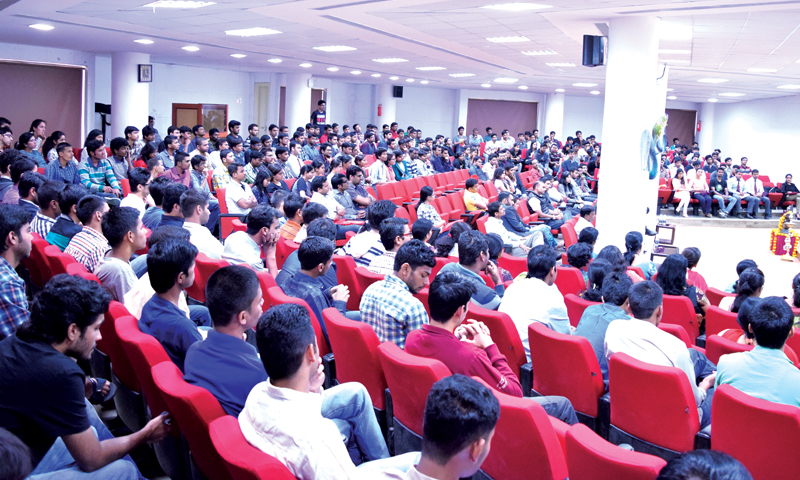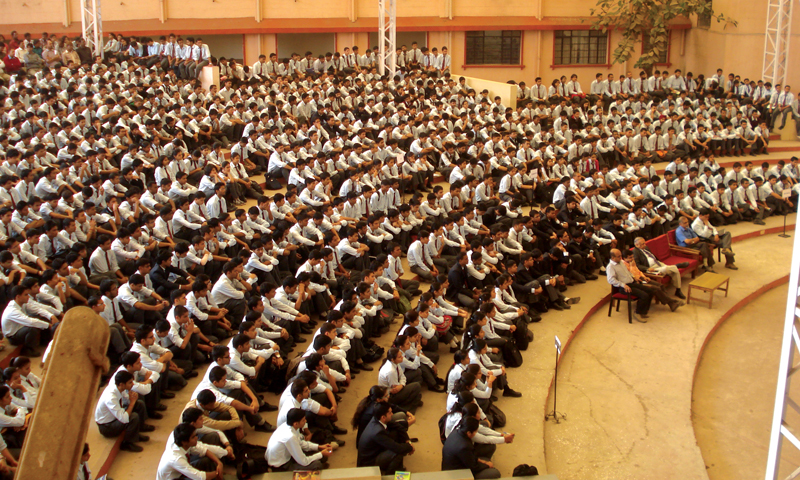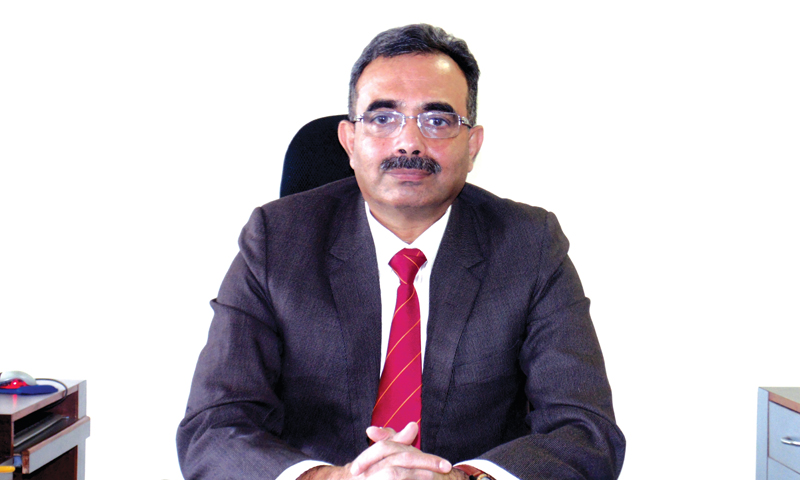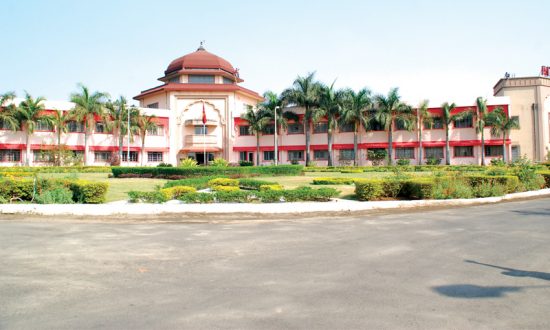Established in 1994, Army Institute of Technology (AIT), Pune is a unique institution where only wards of army personnel are allowed admission. This year, AIT is celebrating its Silver Jubilee with some memorable events such as hackathons, Industry-AIT conclave, special Alumni get together and many more.
Founded by General Bipin Chandra Joshi, a great leader who served the nation as the Chief of Army Staff, Army Institute of Technology was established primarily for taking care of the needs of higher education of Army wards. Until a few years ago, AIT was structured more as a teaching institute. However, in recent times, there has been substantial efforts to foster a culture of research and innovation inside the AIT campus. “It is true that most of the Indian institutes, especially private colleges are essentially teaching colleges. The basic objective of these colleges when they were established was to provide an engineering degree to students and meet the growing demand of technically skilled manpower of the society. At AIT, we have taken many out-of-box initiatives to inculcate this culture of research and innovation,” opines Brig. Abhay A. Bhat (Retd), Director, Army Institute of Technology.
The institute has established various special labs in the campus, such as Product Innovation lab, IoT lab, Robotics and AI lab, Special Cyber security and AI lab in collaboration with industry partners. “We have been motivating and incentivizing faculty for attaining the PhD as well as writing papers and presenting research papers in various conferences. Establishment of IIT Bombay remote center and the Institute Innovation Council, under the guidelines of MHRD and interbranch and intercollege technical competitions, including events such as Ideathons and paper presentations have also been a great encouragement for students and faculty members to take up innovative projects,” explains Brig. Bhat.
Today, AIT faculty and students are actively engaged in various research projects and outcome of these research projects are quality publications and patents. Investigation of blind source separation approaches for MIMO communication systems, design and development of wireless power transfer charging system for active implantable medical devices, cost effective solution for solar panel cleaning system, development of innovative ball milling machine and design and development of new energy storage for HEV are some of the innovative projects taken up by AIT students and faculty members.

Connecting with the Industry
“Challenges in engineering education are huge. Strong industry institute interaction, industry on campus, one faculty – one industry, internships and projects, sponsored labs are some meaningful ways to keep ourselves abreast,” shares Brig. Bhat. AIT has a robust partnership model with leading top industries and has a strong linkage in the form of sponsored labs, hackathons, model making events, Techno Utsav and MOOC implementation. The institute also a preferred destination for almost all top MNCs. TCS, Infosys, Deloitte, Dassault Systemes, INA Bearings, Forbes Marshall, NVidia, IBM, FT 42 Labs, Amdocs, Sigma Electric and many more have strong partnership modules with AIT from last decade.
The consulting organizations like Deloitte, ZS Associates and Mu Sigma have established a strong linkage with AIT through technical competitions, cyber security competitions and data science competitions. The financial industries like Barclays has started finishing schools and hackathon for AIT candidates. Manufacturing industries like INA Bearings, John Deere, Dassault Systemes have dedicated technology challenges and industry sponsored labs. Pure IT service organizations like TCS, Infosys, Capgemini have involved AIT candidates through their online portals and competitions like CodeVita, EnginX, TESTimony. Infosys has also shortlisted AIT for their new Technology and Engagement App – Infy TQ. “Recently, our students have won the prestigious KPIT Sparkle Innovation Challenge by bagging the prize of Rs 10 lakh,” adds Brig. Bhat. Apart from these industries, AIT candidates are constantly getting ranked in open events like IT Olympiad by NASSCOM, IET India Scholarship, Chhatra Vishwakarma Award, NSE Hackathon, TEDx and Tech Next (CSI).

“Many of our alumni are working across the globe. Some of them have launched their own companies and are regularly recruiting from AIT. These include Mr. Preetpal Singh, CEO and founder of Hashmap Inc, USA, Mr. Vikram Sareen, CEO and founder of Blue Bricks group of companies (Australia) and many others. These mentors also visit AIT and guide the students on their future career paths. Many such alumni working in top MNCS abroad and in India ensure partnership and strong bonding with AIT,” explains Brig. Bhat. Many AIT alumni are entrepreneurs, who regularly interact and mentor students with such passion.
AIT’s objective is to produce students who have well developed physical, mental, technical and spiritual quotients. On completing the Engineering course from AIT, the students develop many qualities which provide them a great foundation for their future. “We do not have any immediate grand plans, except consolidating on our gains in immediate future. However, if approved by our Society, we plan to increase the intake to 360, by adding one more division in E&TC. We are also working towards getting approval for Academic Autonomy,” concludes Brig. Bhat.

Brig. Abhay A. Bhat (Retd), Director
Brig Abhay A. Bhat (Retd), an alumnus of National Defence Academy (NDA), was commissioned into the Corps of Signals in December 1982. He has done his B.Tech. in Electronics and Telecommunications from Military College of Telecommunications Engineering, Mhow (MCTE). Brig. Bhat has graduated from the prestigious Defence Services Staff College, Wellington, where Army officers are trained in the nuances of staff function of various operations. Due to his professional caliber, he was sponsored by the Army to attain M Tech in Computer Science and Engineering from IIT, Kanpur. The officer has also acquired a Master’s degree in Personnel Management from Pune University.




